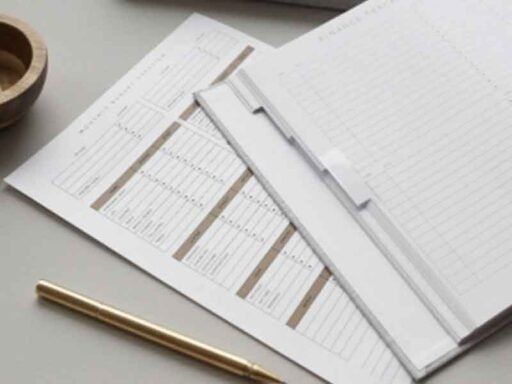Crypto isn’t abstract. It’s real holdings that can affect your bottom line. Many folks use digital assets to trade or invest, and when tax time arrives, that activity needs attention. Agencies now use tools to track transactions, so you can’t ignore what you own or move. Failing to account for crypto gains or trades can raise flags. That’s why clear record keeping and informed action matter. When you manage your digital holdings with care and know which rules apply, you steer clear of trouble. A smart, proactive approach makes the process smoother and gives peace of mind through tax season.
Here’s how you can get started:
Understand How Crypto Gets Taxed
Crypto isn’t taxed uniformly. Holding digital coins usually doesn’t trigger a tax event. But the moment you sell, swap, or spend crypto, you likely owe taxes. Each trade creates a gain or loss, based on its value at purchase versus disposal. That gap matters for your tax bill. Short-term gains (assets held under a year) face higher rates; long-term holdings benefit from lower ones. Knowing these rules upfront helps you plan trades. It also keeps everything transparent, should you need to explain things later. Clear tracking of cost basis and sale price protects you from surprises and keeps filings clean.
Talk to a Tax Advisor Who Knows Crypto
A specialized tax advisor makes a big difference. Reputable firms can guide clients on how exchanges share user data, how blockchain gets analyzed, and what forms must match your records. They can help correct past filings and avoid costly audits. The advisors can break down how agencies match details, like 1099 data or platform logs, to what you file. Spotting mismatches early helps fix errors. By consulting tax advisors, IRS crypto reporting becomes more understandable and less overwhelming. With expert backing, you’ll handle disclosures confidently. A good advisor saves stress and supports accuracy when rules shift.
Keep Track of Every Transaction
Every trade, swap, or spend matters. If you exchange one token for another or use crypto to pay, it counts. Track each event carefully, including date, amount, and USD equivalent. A simple spreadsheet works, or try crypto-focused tracking tools. These help with clarity and record integrity. Good logs let you see your gains or losses at a glance. That way, when the time comes to file, you won’t scramble. Plus, organized data helps if questions arise. Tracking early saves hassle later. Staying on top of entries keeps things manageable and gives insight into how your digital holdings are moving day to day.
Use Crypto Tax Software for Accuracy
Manual tracking gets tiring and error-prone fast. Specialized tax software connects to wallets or exchanges, pulls your transaction history, and auto-calculates gains or losses. Popular tools can also generate forms like IRS Form 8949 with less effort. Automated tools reduce slip-ups and save time. That precision matters when matching reported numbers. Plus, these apps simplify reviewing several trades across different platforms. When filing, you’ll have clear reports to submit or hand over to your advisor. Using software makes the process smoother and more reliable, saving mental energy and avoiding mistakes that could trigger audit flags.
Know the Difference Between Short-Term and Long-Term Gains
Knowing how long you hold an asset affects tax rates. Assets held under a year fall under standard income rates, higher than long-term rates. Holding longer than 12 months qualifies for lower capital gains treatment. That distinction can make a real impact on what you owe. Letting crypto appreciate for the long haul often yields better tax outcomes. It’s a simple rule with big implications. When planning trades, check holding periods before you sell. Pausing a sale by even a few days can change your rate. Small timing shifts might save money. Awareness helps you choose when to sell or stay put without guesswork.
Report Airdrops and Staking Rewards
Free crypto isn’t always free from taxes. If you earn coins from staking rewards or an airdrop, that can count as income. It doesn’t matter if you sold them or not; just getting control over them may trigger a reportable event. The value of the coins on the day you received them should be recorded. That’s the number you’ll report. Many people skip this step because they have never made a sale. But failing to mention received rewards can raise flags later. If you’re active in DeFi or staking platforms, track those earnings from the start. Include them in your records just like you would any other received item.
Mining Crypto Is Treated as Income
If you’re mining crypto, the IRS treats your rewards as taxable income. The fair market value of coins you mine on the day you receive them needs to be recorded. Whether mining is a hobby or something you do regularly, the value still gets reported. You might be able to claim equipment or electricity used for mining, but that depends on your setup. Clear logs of income and related costs can be helpful if you’re ever audited. Even small miners must follow these rules. Don’t assume it’s too little to matter. It’s better to record everything than to forget and struggle to explain unreported amounts later.
Fix Reporting Mistakes Early
Mistakes happen, especially with crypto. Maybe you forgot a wallet, missed a trade, or skipped reporting airdrops. If you catch an error after filing, you can fix it by submitting an amended return. The sooner you do, the better. Voluntarily correcting the issue shows good faith. That can reduce the chance of penalties or more serious trouble. Tax authorities appreciate honest efforts to set the record straight. Waiting for a notice only adds pressure. If you’re unsure how to make changes, get help from a crypto-literate advisor. Acting early makes everything smoother and keeps your record clean going forward.
Crypto can be exciting, but it brings responsibility, too. As rules around digital assets evolve, reporting obligations grow stricter. Keeping records, understanding tax triggers, and consulting an expert can make all the difference. Whether you’re trading casually, mining, or earning through staking, staying organized helps you stay compliant. Don’t leave things to chance because errors are harder to fix later. Tools, advisors, and early planning simplify what can otherwise feel overwhelming. Start preparing before tax season hits. A little effort now keeps things simple later and helps avoid any unwanted surprises. When you treat crypto like any other asset, you’re already one step ahead.






